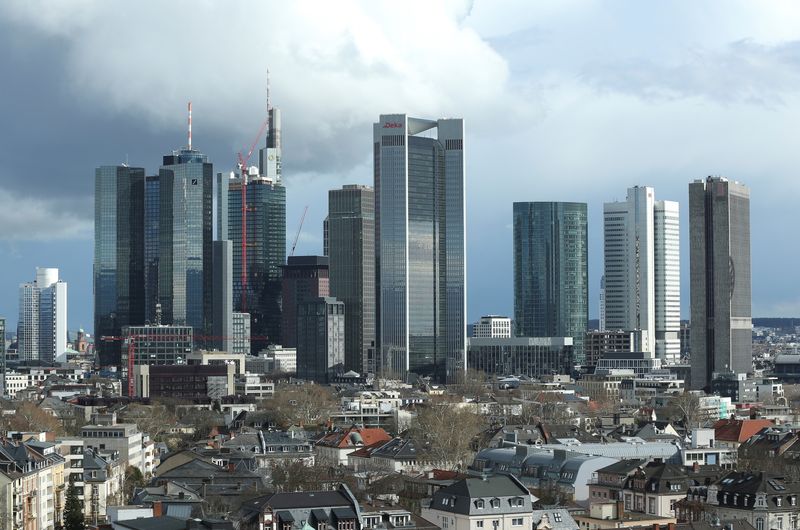BERLIN (Reuters) - German investor sentiment fell by less than expected in April, a survey showed on Tuesday, as a decline in inflation expectations gave some cause for hope about the outlook for Europe's largest economy.
The ZEW economic research institute said its economic sentiment index fell to -41.0 points from -39.3 in March. A Reuters poll had pointed to a reading of -48.0 for April.
"The ZEW Indicator of Economic Sentiment remains at a low level. The experts are pessimistic about the current economic situation and assume that it will continue to deteriorate," ZEW President Achim Wambach said in a statement.
"The decline in inflation expectations, which cuts the previous month's considerable increase by about half, gives some cause for hope. However, the prospect of stagflation over the next six months remains," he added.
An index for current conditions fell to -30.8 from -21.4. The consensus forecast was for a reading of -35.0.
The ZEW data echo other weak economic reports from Germany following Russia's invasion of Ukraine, which began on Feb. 24.
Late last month, the German government's council of economic advisers more than halved its 2022 growth forecast for Europe's largest economy to 1.8% and flagged a "substantial" recession risk as a result of the invasion.
German business morale also plummeted in March as companies worried about rising energy prices, driver shortages and the stability of supply chains in the wake of the war in Ukraine.
Separate data on Tuesday showed Germany's annual harmonised consumer price inflation (HICP) rate ran at 7.6% in March. Wholesale prices rose by 22.6% on the year, the highest annual rate since the calculation of the data began in 1962.
"Germany is threatened with recession," said Thomas Gitzel, chief economist at VP Bank. "Germany, with its export-heavy industry and dependence on intermediate goods from Asia, is without weather protection in a raging logistics hurricane."

Germany plans to offer more than 100 billion euros ($108.63 billion) worth of aid to companies hit by fallout from the war in Ukraine, according to a document from the finance and economy ministries seen by Reuters last Friday.
($1 = 0.9206 euros)